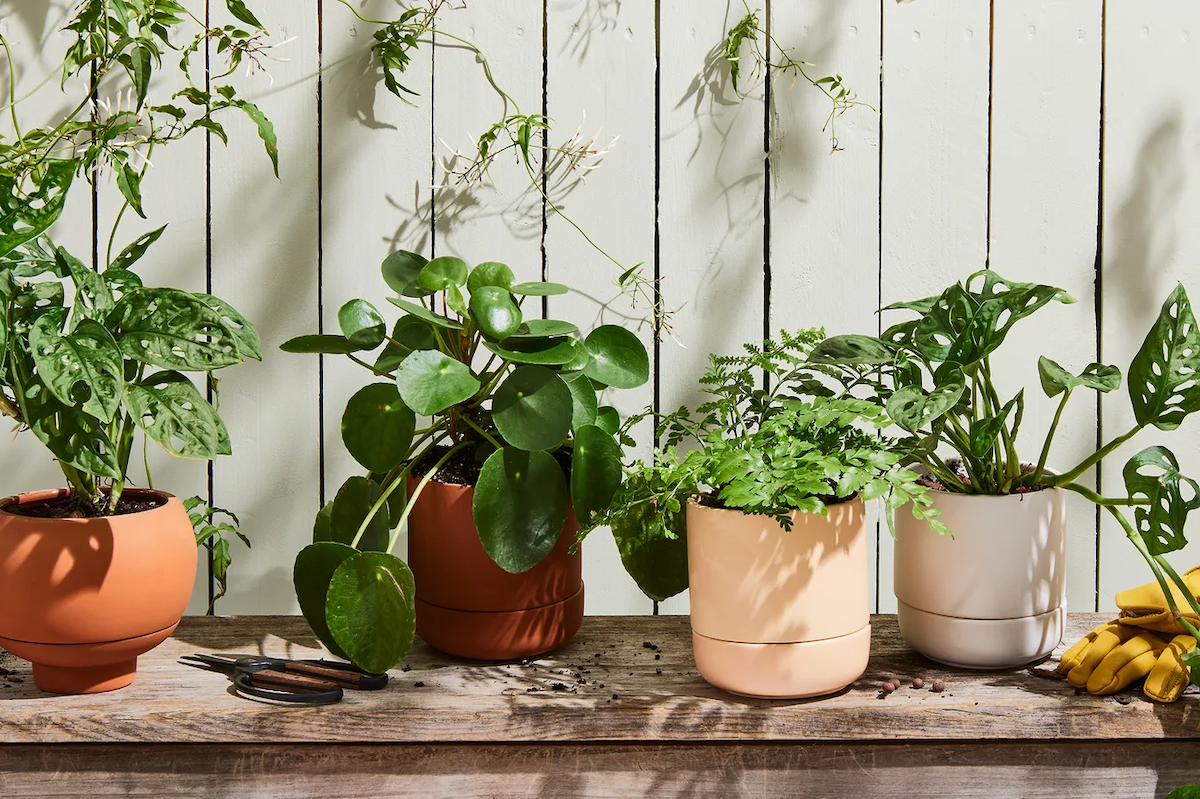You can Grow Your Own Way. All spring and summer, we're playing in the vegetable garden; join us for step-by-step guides, highly recommended tools, backyard tours, juicy-ripe recipes, and then some. Let's get our hands dirty.
When I think about gardening and farming, I think about the innate messiness that comes with agricultural work. There's dirt and mud everywhere and, no matter how much effort you put in or how much you "play by the book", you cannot control when, or if, your plants thrive. Perfectionism is one of the many byproducts of generations of Black people trying to survive in the Western world. My mom always used to say "you have to be twice as good to get half as much" and I know she's just one of many Black parents to teach their children this hard truth. This creates an unreachable goal of perfectionism that many Black people feel confined by. But where can creativity grow within these societal rules for survival? Can the joyful messiness that is gardening, or just being in nature, help to ease these ancestral tensions that we hold and create space for new passions?
My grandma, Maudry Robinson, was born into a farming family in the 1940's in Sedbergh, Jamaica. Her parents rented plots of land and taught her how to grow fruit trees and vegetables like potatoes and corn, as well as how to raise every kind of animal that a farm would need to create its own thriving ecosystem.
For my grandma, farming wasn't something that she necessarily enjoyed. It was a job that she had since she was a child. She was born into a poor family, taken out of school in the third grade to help her parents work the land and provide for the rest of the family. After she married my grandpa and started raising children, she was determined to give my mom and her siblings a life that she never had — a life that didn't have to involve farm work — but my uncle fell in love with it. He created a miniature farm in the backyard of his New Jersey home. Farming and gardening are things that have always relaxed him and made him happy, so he decided that no matter where he would be, a garden would follow. He's not the only one — gardening is a boon to mental health for lots of folks, particularly Black people.
Shayla Cabrera is a Jersey City-based, Afro-Latina plant guru and cannabis producer who is also the creator of Tia Planta. Creating a space for your plants to thrive while living in a city can be really difficult, but Cabrera has made a business out of teaching people how to create their own personal green spaces.
"Plants have, no pun intended, really grounded me," says Cabrera. "There's something about getting dirty and messy that's so fun like harvesting your cannabis or when a new leaf unfurls or [bringing a struggling plant] back to life."
As an entrepreneur, life can get hectic very quickly, but her business forces her to slow down and appreciate the little things (like a new bud on a flower that's been struggling to grow). Some of Cabrera's plants are six years old, which means that they've been alive through some of the highs and lows of Cabrera's life. Looking at the growth in those plants is a gentle reminder of how far she has come in her career and in her personal journey.
We spoke about how, as Black women, we are not allowed the grace to be "messy" physically, emotionally, or career-wise. In working with plants, Cabrera has found a career path in which messiness is not just encouraged, but necessary. "I really love being able to show other [Black] people that you can still be happy and successful without following the norm", she says.
"One of the greatest lessons I've learned from plants is that the plants that struggle are the strongest ones", Cabrera said. She's not the only one who feels that way.
Sandra Louis is a self-taught farmer on Gabriola Island in BC Canada and the creator behind On Our Farms, a medicinal herb farm located on seven acres of unceded indigenous lands on Gabriola Island. The climate is perfect for several subtropical fruit varieties that usually wouldn't take root on the Canadian mainland, like figs and kiwis. Louis grew up around people who had a love for the agricultural arts, but it wasn't until she was at a low point in her life that she turned to gardening as a form of therapy. It became a way to remind herself that if the earth can heal and grow beautiful things. With a little help, so could she. "I didn't grow up in the best household," Louis began. "I didn't have somebody there to help me through the traumas I went through and farming is what helped me get clean. [Farming] is not just about helping me become a better person, it's also about learning the land and learning how to handle my emotions . . . and it helps me teach these lessons to my daughter. That way as she is going through life, I can show her the things that I didn't have, and the tools that I used, and how you can use them for different things; just like a tool in the garden."
When she and I think about the idea of a farmer, this is the image that comes to mind: our beautiful Black grandmothers. For a lot of people, when they think of a happy farmer, the first image that comes to mind is a white, middle-aged man in middle America wearing plaid and overalls (think: American Gothic). Louis's grandmother, now about 94, lives in Haiti, and still works on the land she loves. "There's a tradition of love being put into the earth, being put into our bodies, that I feel like I'm a part of, ' Louis said.
When I think of my own grandma's hands, I see her working in her garden in the back of her house. It looks like an oasis in the middle of the suburbs — it's the only house with massive hibiscus plants, dozens of calla lilies, and a cherry blossom tree. While she wasn't able to find peace in gardening and farming in her younger years, her garden has now become her safe space. Her hands have grown cantaloupes, watermelons, strawberries, callaloo, tomatoes, and so much more on her little plot in suburbia. I remember hopping the small fence to get into the strawberry patch when I was in elementary school to grab a berry or two before the squirrels got to them. I didn't know it then, but I was following in her footsteps, learning how to take care of myself as I cared for plants, too. While I never fully inherited my grandmother's green thumb, my window garden of scallions, basil, and succulents is evidence that she successfully passed something down to me.


Shares